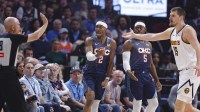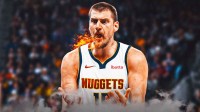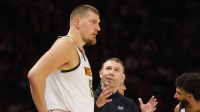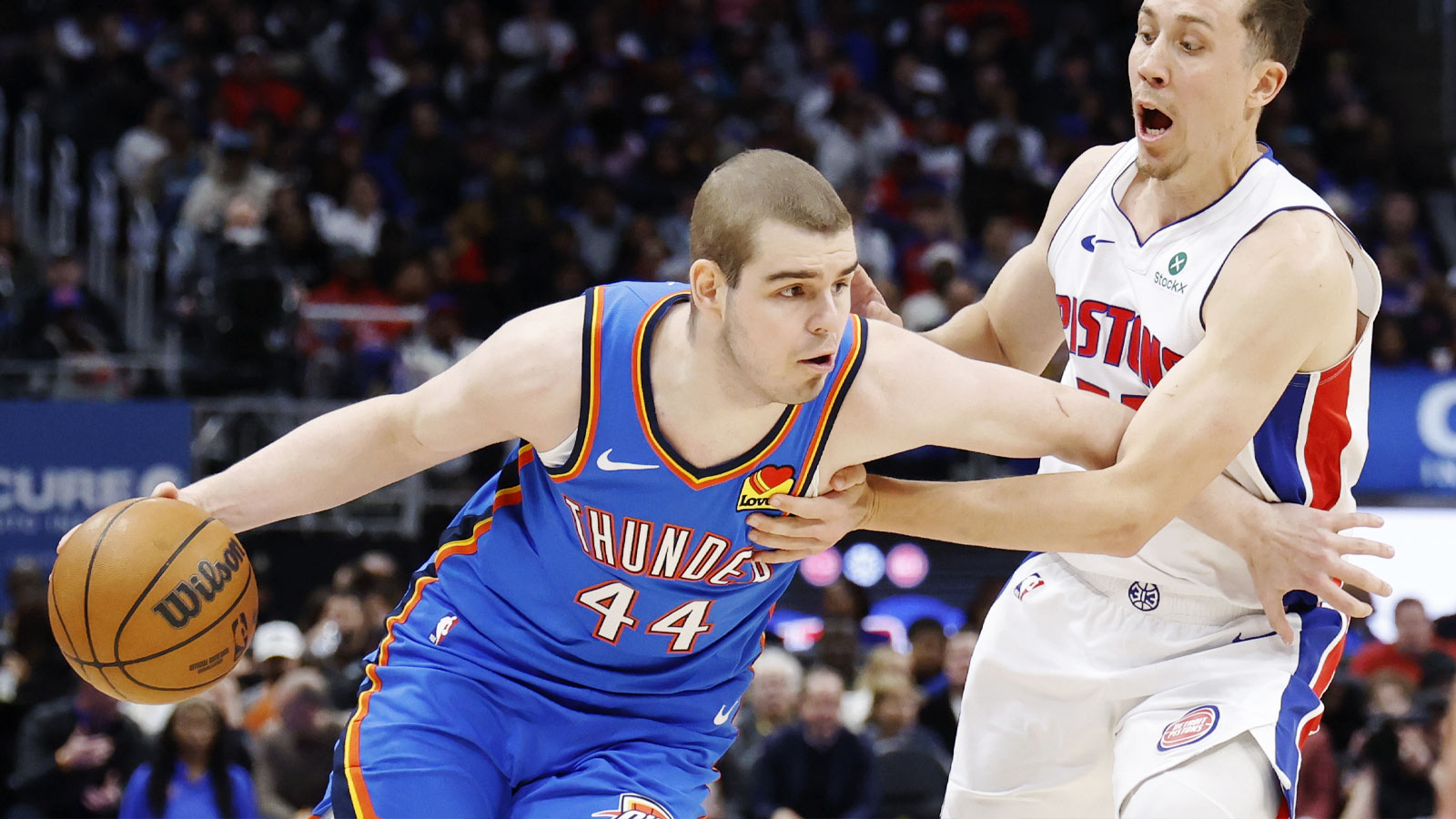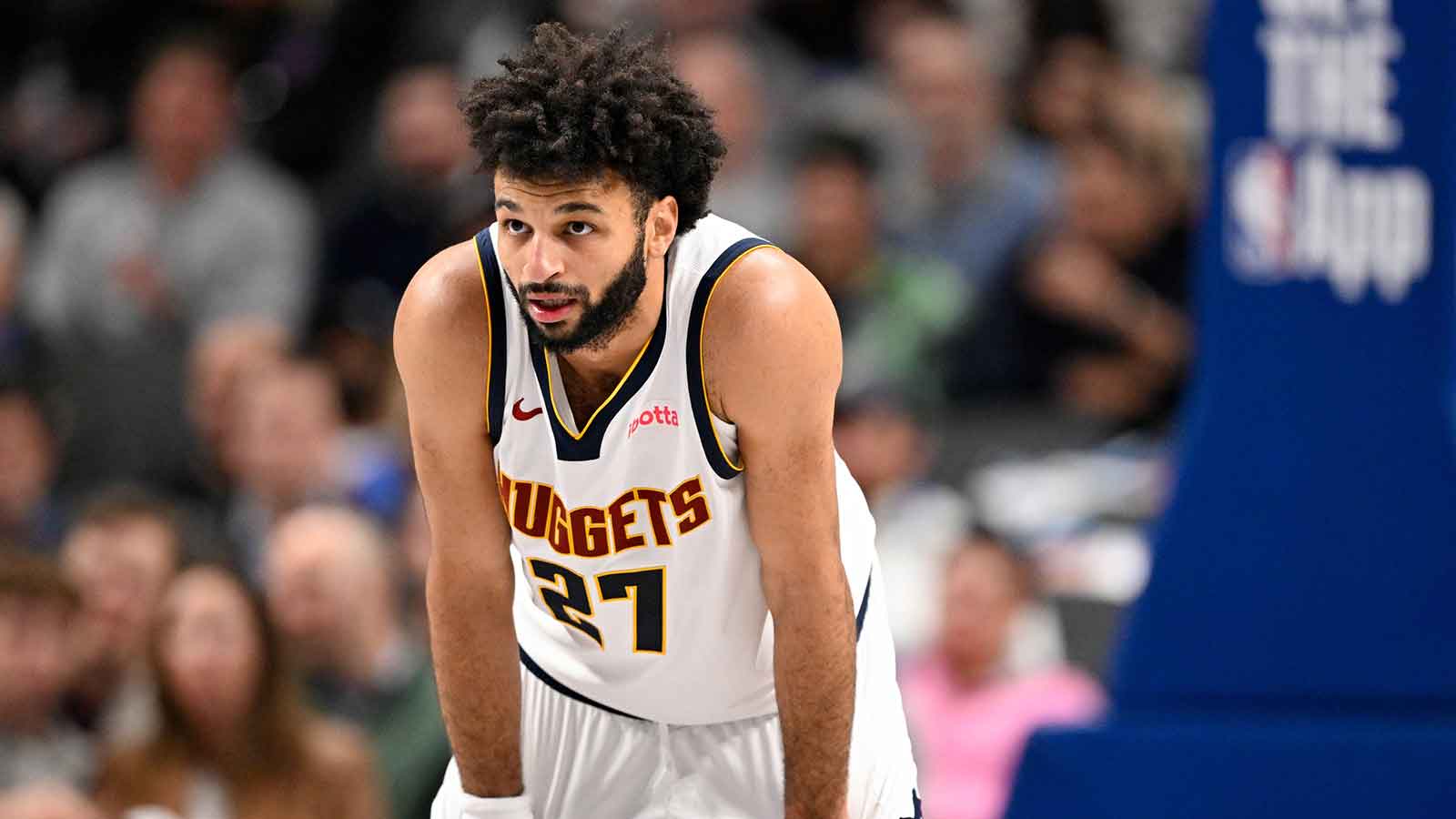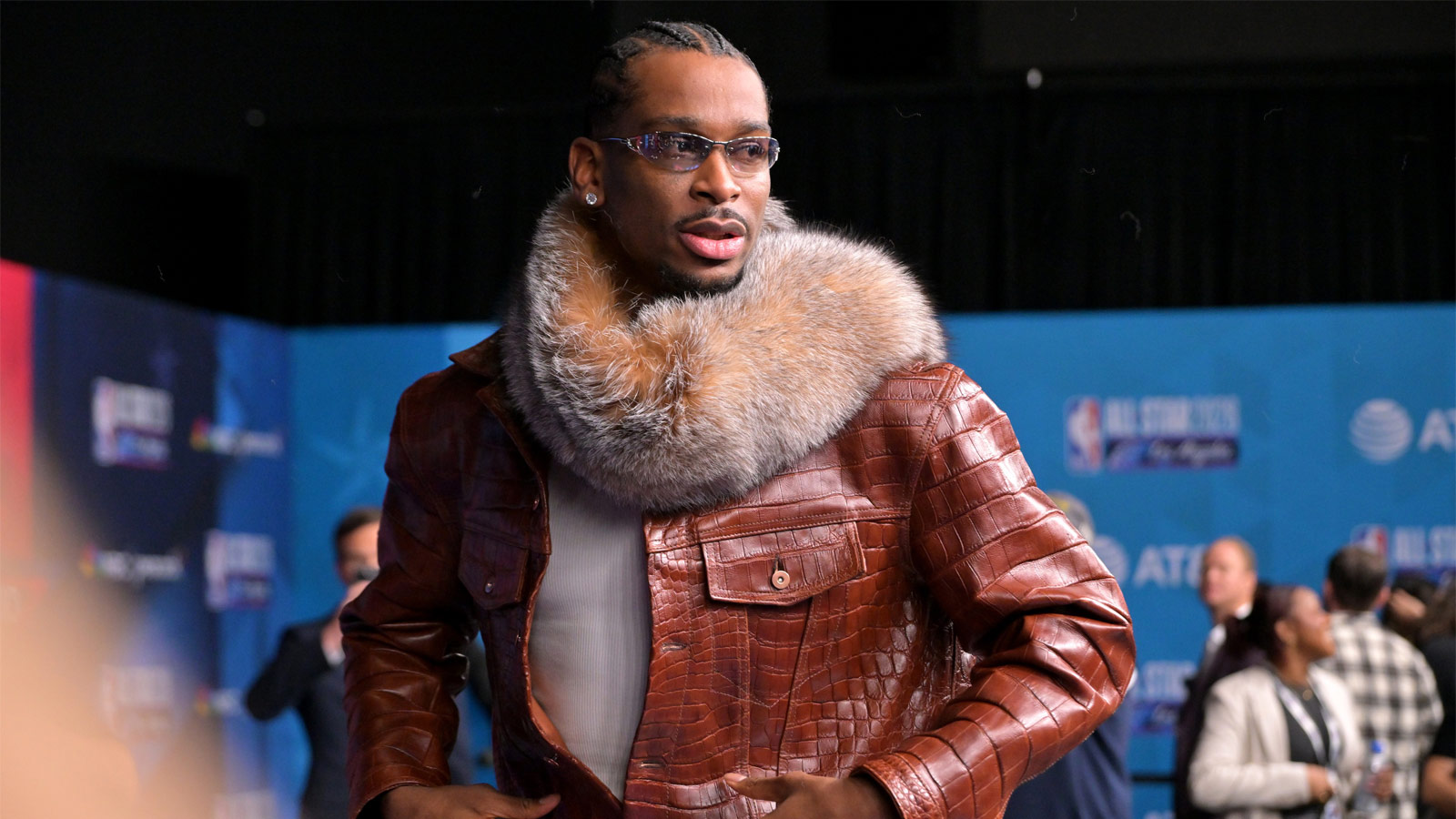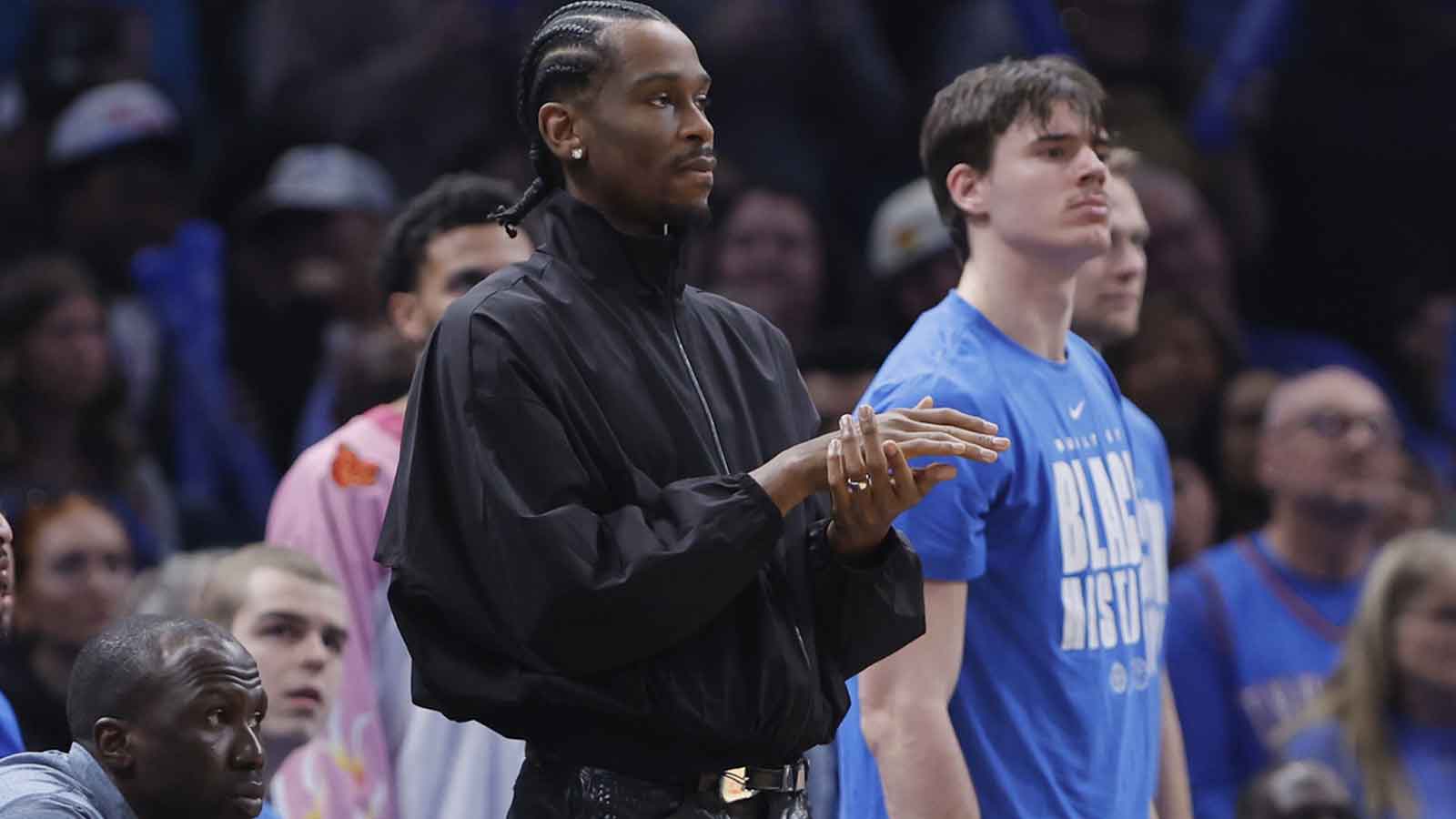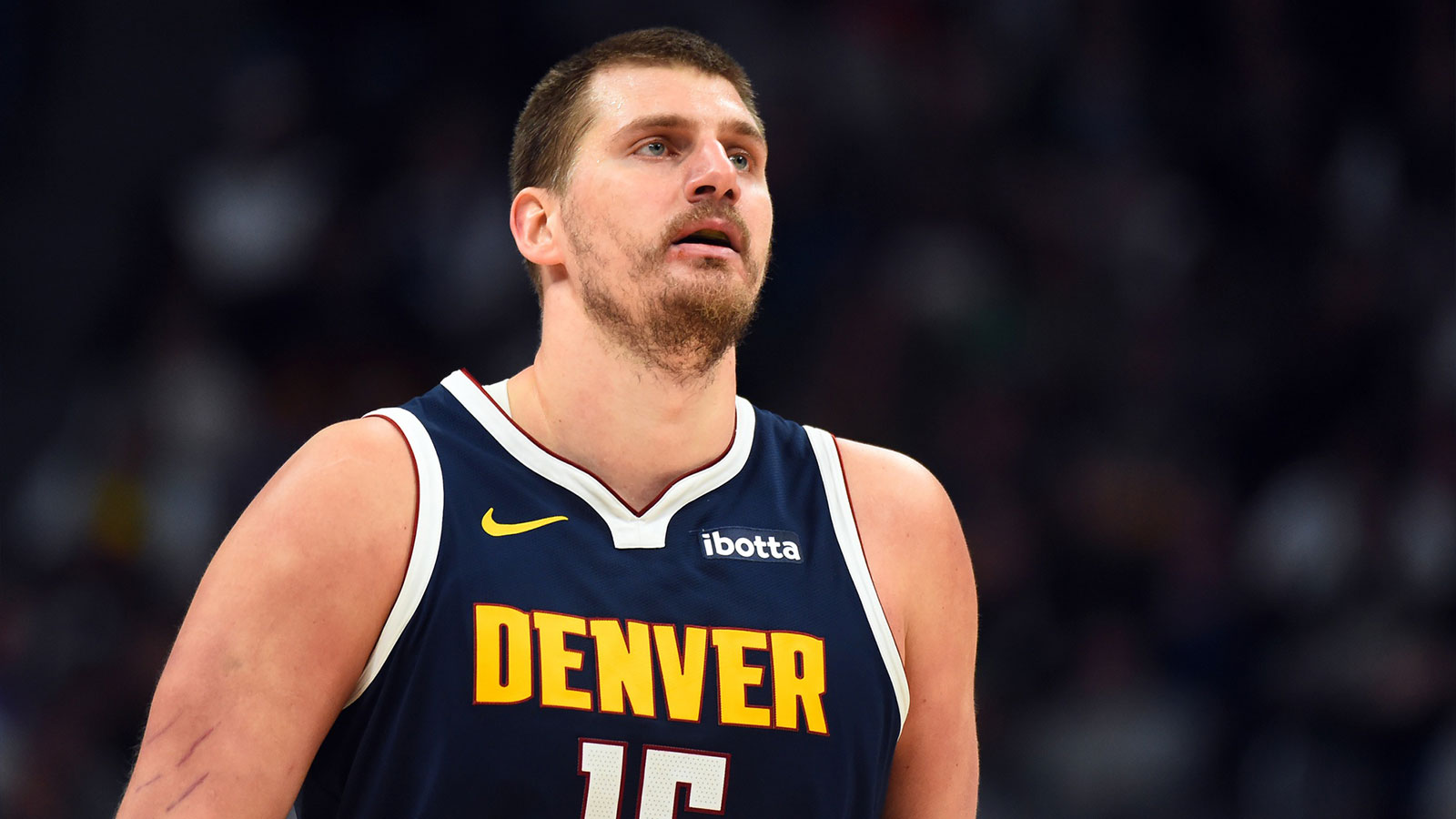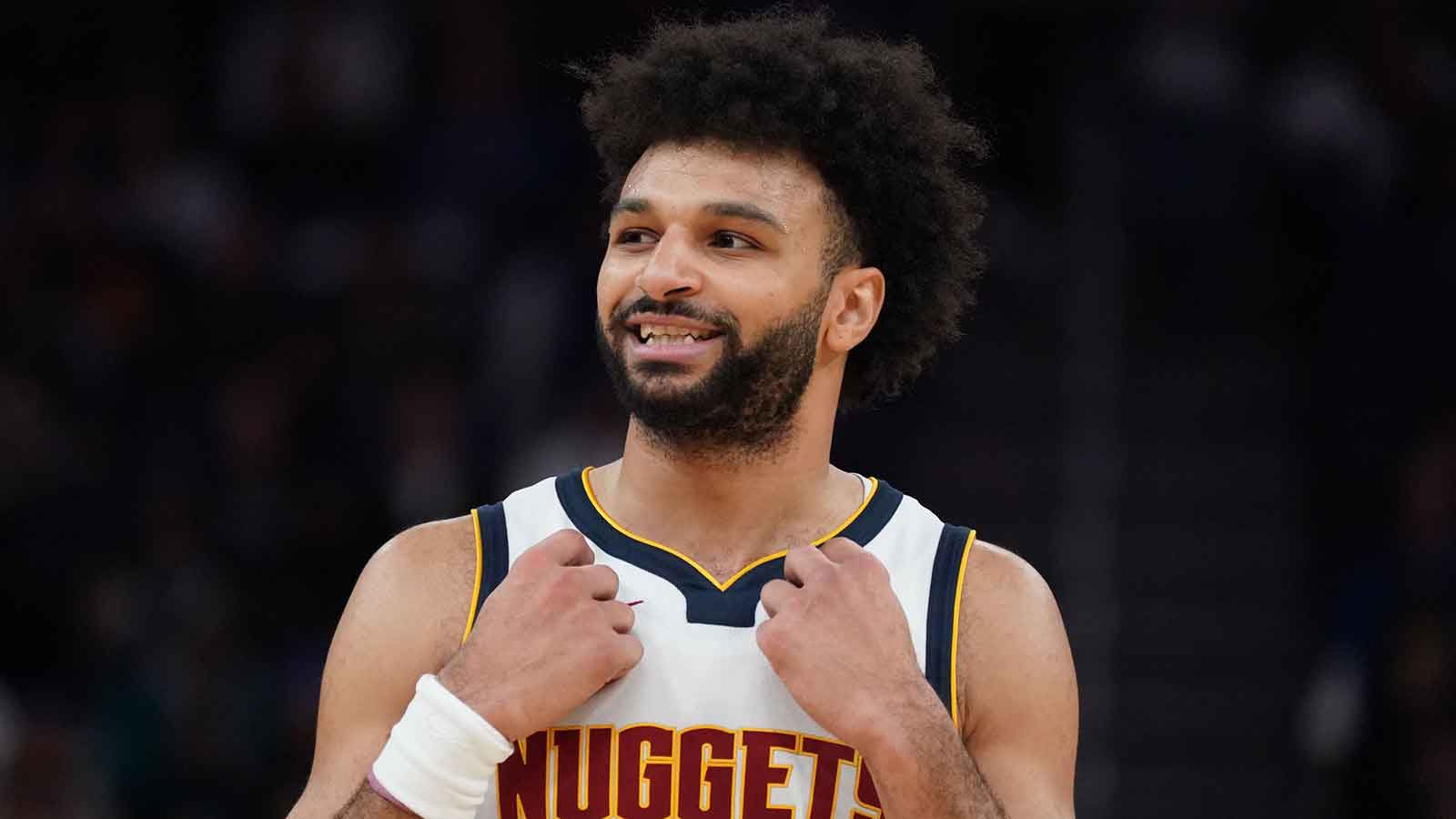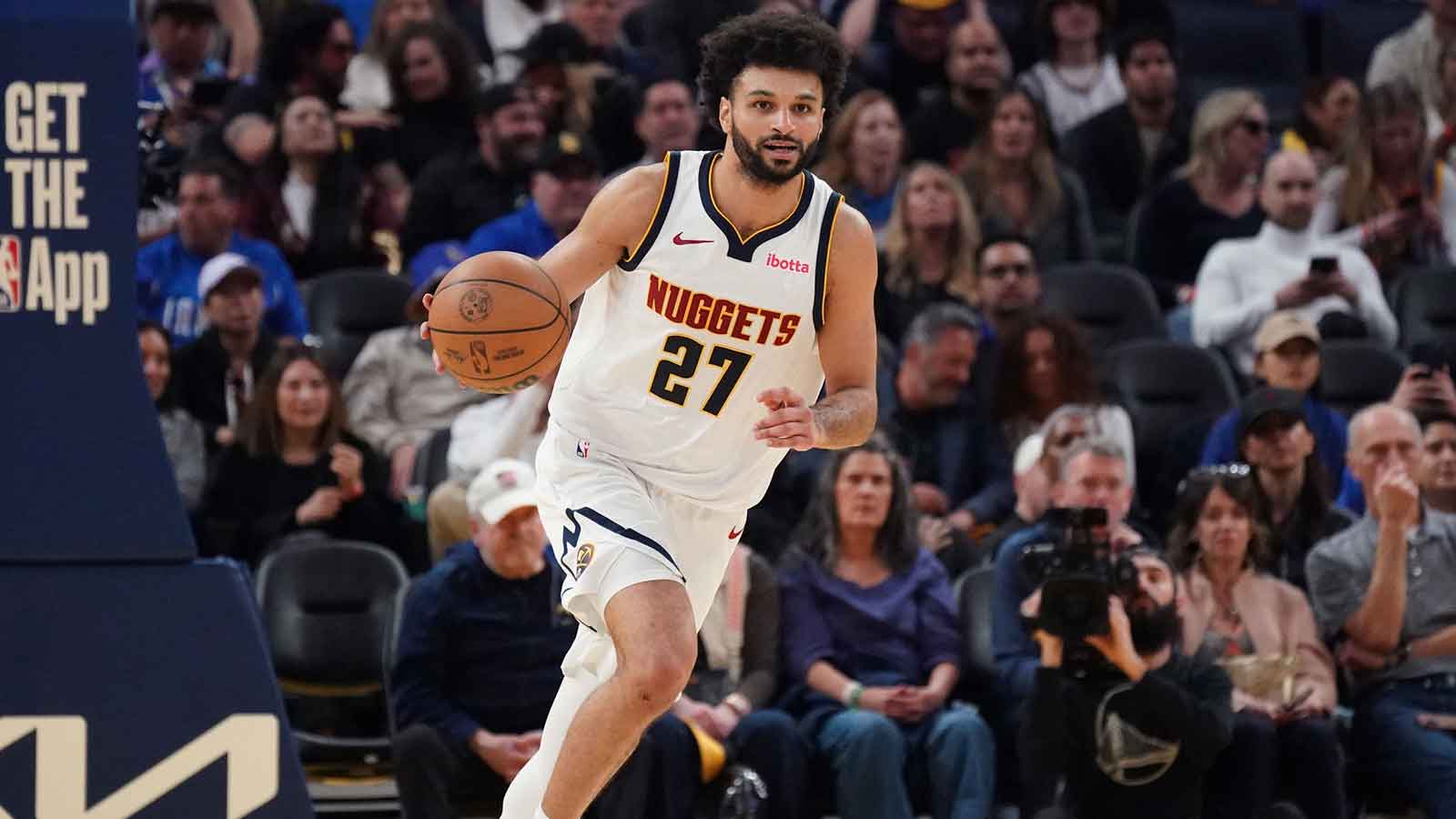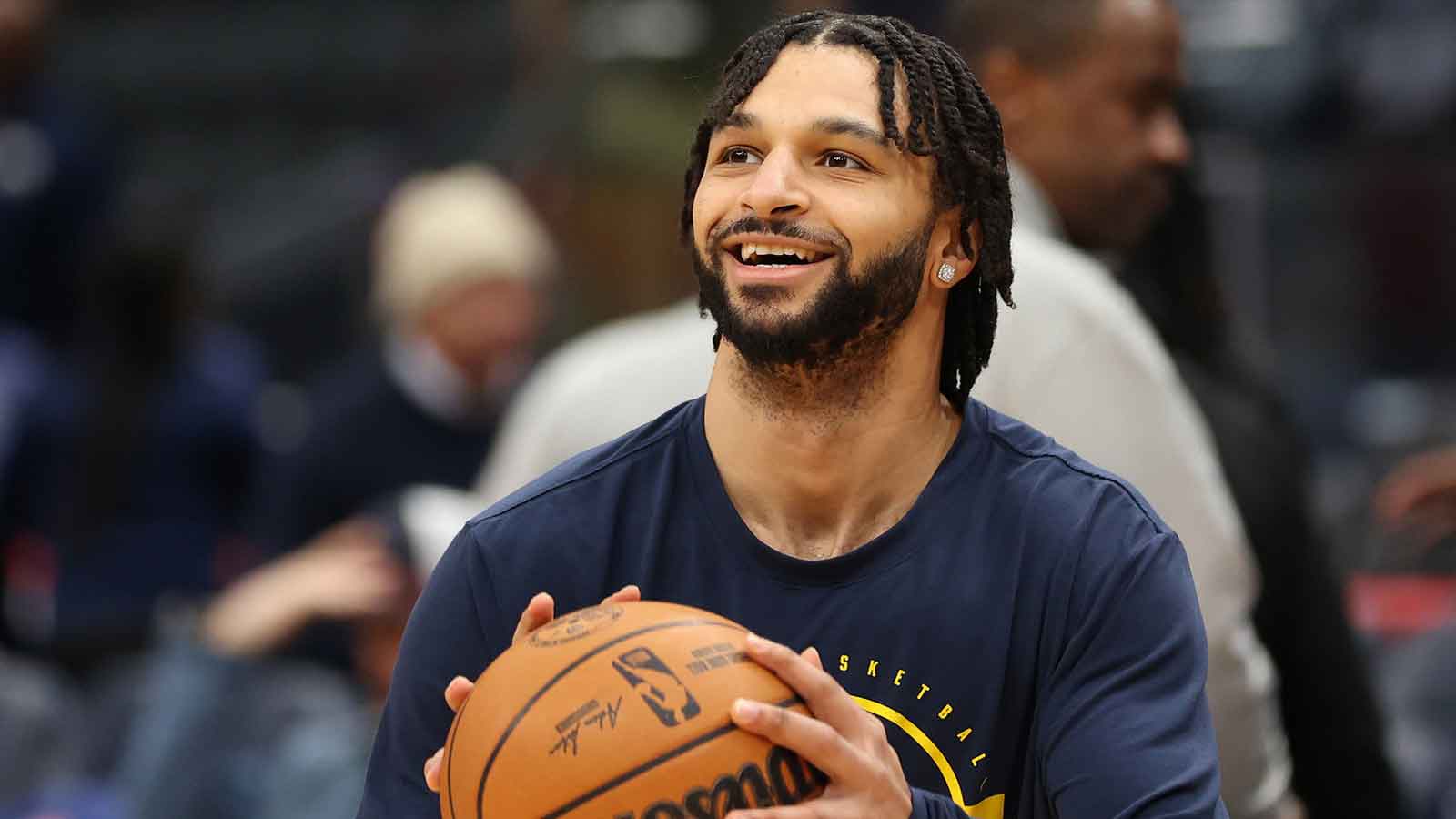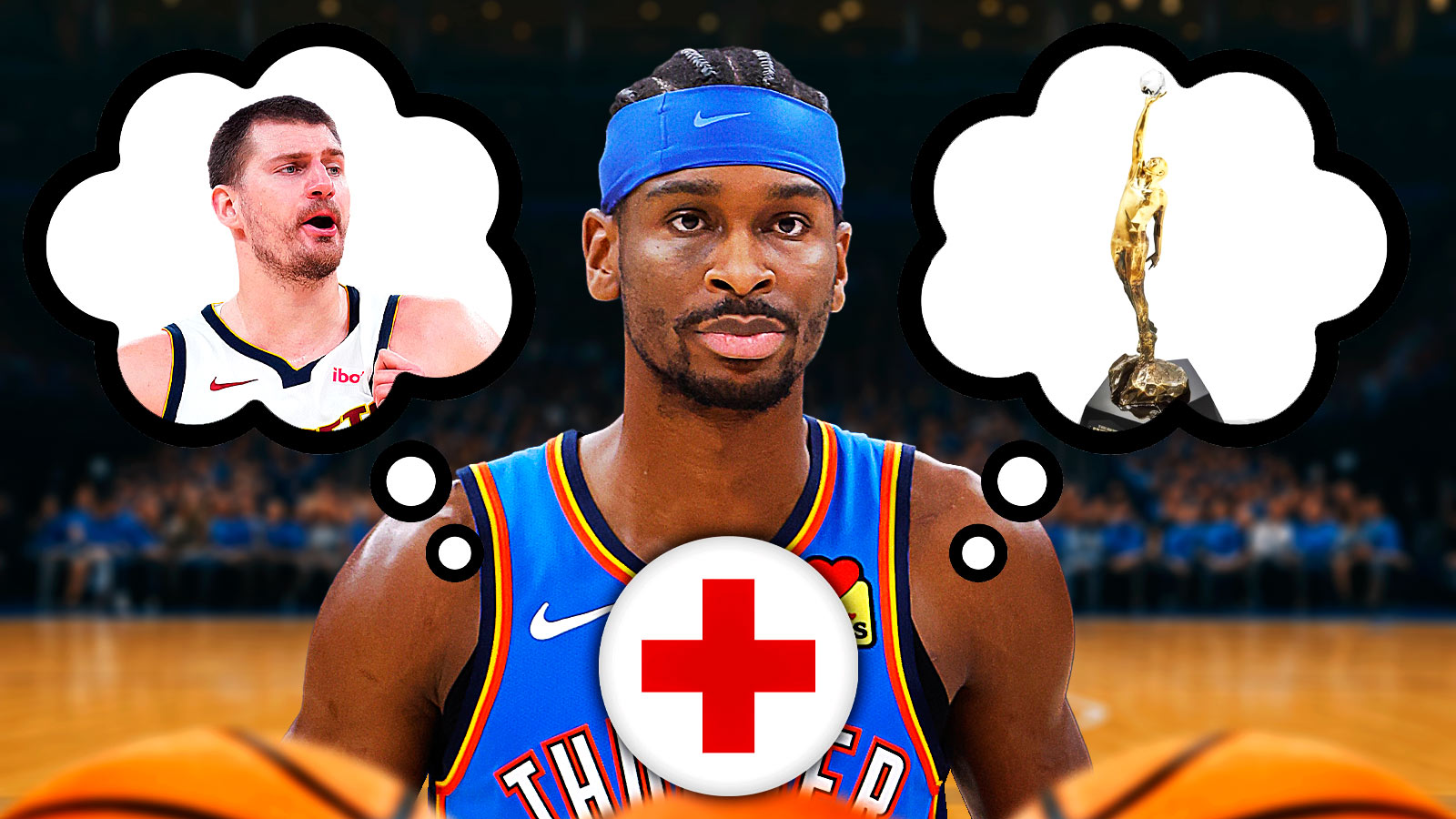Loud noise can be distracting and difficult to remove from our brains. The NBA offseason exemplifies this. Numerous playoff teams in the Western Conference made immense moves to improve their rosters. Meanwhile, one of the best teams in the conference, the Denver Nuggets, didn't, and they've become the forgotten contender out West because of it.
The Los Angeles Clippers added Kawhi Leonard and Paul George; the Los Angeles Lakers acquired Anthony Davis; the Utah Jazz added Mike Conley and Bojan Bogdanovic; the Houston Rockets traded Chris Paul for Russell Westbrook; the Portland Trail Blazers acquired Hassan Whiteside; the Golden State Warriors acquired D'Angelo Russell in a sign-and-trade with the Brooklyn Nets.
The Nuggets traded for the rights to Oregon center Bol Bol. That's about it. But here's the reality: They didn't need to do anything. They were already in position to contend for the NBA Finals next season.
Here's a refresher: The Nuggets were the two seed in the Western Conference and took the Trail Blazers to seven games in the second round of the playoffs last season. From top to bottom, they have a roster capable of advancing two more rounds in the playoffs.
The heart and soul of the Nuggets is Nikola Jokic and Jamal Murray.
Jokic has a case for being the best center in the NBA. He has a slow, but efficient, outside jump shot, hits the boards, defends the rim, can bring the ball up the floor, is an elite passer for his size, and a team player; he generally takes what the defense gives him.
The big man averaged a career-high 20.1 points, 10.8 rebounds, and 7.3 assists (which was first among centers, forwards, and shooting guards and ninth in the NBA, as a whole), as well as 1.4 steals per game last season.
Murray can flat-out score. He gets to the rim, shoots off the dribble, skies above the rim, and sticks outside jump shots. Last season the point guard averaged a career-high 18.2 points, 4.8 assists, and 4.2 rebounds per game. In fact, he has increased his point, assist, and rebounding outputs in each of his three seasons in the NBA.
In the postseason, Murray went on a tear. Averaging an astonishing 21.3 points per game, he put the Nuggets offense on his back, took pivotal shots, and wasn't fazed by the big moment.
Of course, the two players have their weaknesses; Jokic is a minuscule threat in the post, and Murray doesn't rack up many assists. But the two players have only improved over the course of their NBA careers. With more room for growth, they surely haven't reached their ceilings.
Gary Harris has become a bit of a forgotten commodity. The shooting guard missed some time due to a hip injury and took a bit of a backseat to Jokic and Murray last season. But Harris is only a year removed from averaging 17.5 points per game.
Harris competes on both ends. Before last season, he was an integral source of offense for head coach Mike Malone's offense, given his ability to play with aggression and make outside jump shots; he also plays tight on-ball defense.
Meanwhile, Paul Millsap is still one of the most gritty and fierce big men in the NBA. He overwhelms defenders in the post, stretches the floor with his outside shooting, and is an exceptional defender inside and out. Now, the veteran doesn't chime in at a high level offensively, but he doesn't have to because he's the Nuggets' fourth best scorer.
In the 2017-18 season, Millsap was limited to 38 games due to injury, and the Nuggets missed the playoffs by one game. Had he been healthy, or even played in 20 more games, the Nuggets would've likely edged the Minnesota Timberwolves for the eighth seed in the Western Conference. Last season he appeared in 70 games, and the Nuggets finished near the top of the conference.
You also can't sleep on Denver's bench.
Torrey Craig is a lockdown defender. With him inserted into the starting five midway through their first round series matchup with the San Antonio Spurs, it was an enormous reason why the Nuggets advanced to the second round; Will Barton has a knack for getting the ball in the cup and was previously a focal point of Denver's offense; Malik Beasley stretches the floor with his outside shooting and can put the ball on the floor; Mason Plumlee is an athletic big man who makes an impact in the paint on both ends; Monte Morris is an offensive spark plug.
Now there's the Bol Bol and Michael Porter Jr. factors.
Despite being limited to just nine games due to a foot injury, Bol showcased his potential at Oregon last season. Averaging 21.0 points, 9.6 rebounds, and 2.7 blocks per game, he made his presence felt on both ends. Bol hits the boards, rejects shots with authority, isn't afraid to hoist up outside jump shots, and, had he not gone down early in the college basketball season, he may have been a top-five draft pick.
Bol will be playing behind Jokic and potentially battling for playing time with Plumlee, so he won't be playing a vital rotation role. But if he takes things slowly and plays to his strengths, he could be a savvy reserve. For instance, while they have proven defenders inside, the Nuggets don't have a shot-blocking assassin; Bol could serve as such a player and gradually get into a groove offensively.
Like Bol, Porter was a projected top-five pick before suffering an injury which sidelined him for nearly the entirety of his freshman season at Missouri and all of what would've been his rookie season with the Nuggets.
If he can get on the floor, he's an X factor. Granted Jokic and Murray can score at a high rate, but having more scorers, especially off the bench, would come in handy for the Nuggets. One thing Porter can do is score, and the potential for him to be a big-time scorer was why they took him with the 14th pick in the 2018 NBA Draft, despite experiencing recurring injuries.
It's incredible how teams who don't make franchise-altering moves, or ones who stand pat with their roster, can be cast aside in the public eye, even when they have a roster that can compete for a championship. Could the Nuggets have made some noise in the offseason? Sure, but the groundwork is already laid down for the present and future.
In the 2016-17 season they won 40 games; the ensuing season they won 46; last season they won 54. This team is accustomed to playing with each other, they've grown up together, and are a collective force to be reckoned with. The NBA offseason just so happened to distract people from their continued growth and potential.



